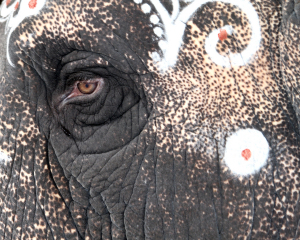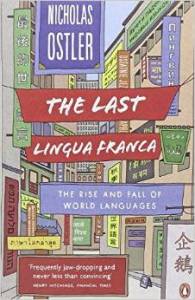No English here, please – we’re Indian!
 After my last post on whether English is losing its position as the lingua franca, it was fascinating to hear that India’s Prime Minister, Narendra Modi, wants Hindi to be more prominent in India and has ordered civil servants to use it on Facebook and Twitter, rather than English.
After my last post on whether English is losing its position as the lingua franca, it was fascinating to hear that India’s Prime Minister, Narendra Modi, wants Hindi to be more prominent in India and has ordered civil servants to use it on Facebook and Twitter, rather than English.
English was once, of course, the language of government and the elite in India, but Mr Modi insists on using Hindi in his meetings with world leaders and for major speeches.
Fair enough, you may think – this is India, after all – but is he swimming against the linguistic tide?
That was Kate Adie’s question in her intro to Craig Jeffrey’s piece in From Our Own Correspondent on Radio 4 (you can catch it here –http://www.bbc.co.uk/programmes/b047w54x  – 23.25 minutes in)
– 23.25 minutes in)
Craig Jeffrey says that English is resurgent in India – Indians frequently drop English words and phrases into their everyday speech, even when there are perfectly good equivalent words in Hindi, Bengali or Gujarati.
It’s wrong to call this ‘Hinglish’ he says – it’s not just a passive use of English, but a creative reinvention, with new coinages and expressive, inventive usage.
For example, ‘tension’ is used as a noun (don’t give me tension), a verb (don’t tension me) and even an adjective (that was a very tension exam). And there’s even an Indian version of rhyming slang in use!
It seems likely that Mr Modi – like the grammar police in this country, and the Academie francaise – is doomed to fight a losing battle. People everywhere will carry on using whatever language they like, and there’s very little officialdom can do to stop them. There are signs that the Academie is recognising this – last year they even elected an Englishman, Michael Edwards, as an Immortel!
Tess Wright, Chief Executive






Leave a Reply
You must be logged in to post a comment.